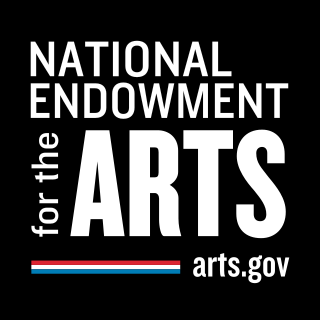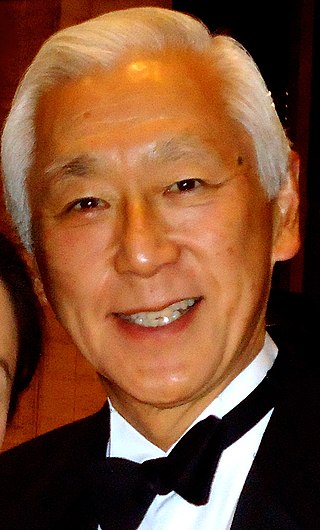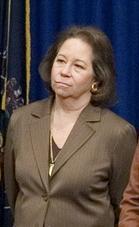Related Research Articles

Winterthur Museum, Garden and Library is an American estate and museum in Winterthur, Delaware. Winterthur houses one of the richest collections of Americana in the United States. The museum and estate were the home of Henry Francis du Pont (1880–1969), Winterthur's founder and a prominent antiques collector and horticulturist.
The Canada Council for the Arts, commonly called the Canada Council, is a Crown corporation established in 1957 as an arts council of the Government of Canada. It is Canada's public arts funder, with a mandate to foster and promote the study and enjoyment of, and the production of works in, the arts.

The National Endowment for the Arts (NEA) is an independent agency of the United States federal government that offers support and funding for projects exhibiting artistic excellence. It was created in 1965 as an independent agency of the federal government by an act of the U.S. Congress, signed by President Lyndon B. Johnson on September 29, 1965. It is a sub-agency of the National Foundation on the Arts and the Humanities, along with the National Endowment for the Humanities, the Federal Council on the Arts and the Humanities, and the Institute of Museum and Library Services.
The Stanford University School of Humanities and Sciences is the heart of the undergraduate program and grants the majority of Stanford University's degrees. The School has 27 departments and 20 interdisciplinary degree-granting programs. The School was officially created in 1948, from the merger of the Schools of Biological Sciences, Humanities, Physical Sciences, and Social Sciences. Those schools date from the mid-1920s when the university first organized individual departments into schools.

The National Endowment for the Humanities (NEH) is an independent federal agency of the U.S. government, established by the National Foundation on the Arts and the Humanities Act of 1965, dedicated to supporting research, education, preservation, and public programs in the humanities. The NEH is housed in the Constitution Center at 400 7th St SW, Washington, D.C. From 1979 to 2014, NEH was at 1100 Pennsylvania Avenue, N.W., Washington, D.C., in the Nancy Hanks Center at the Old Post Office.
The President's Committee on the Arts and the Humanities (PCAH) is an advisory committee to the President of the United States on cultural issues. It works directly with the White House and the three primary cultural agencies: the National Endowment for the Arts (NEA), National Endowment for the Humanities (NEH), and the Institute of Museum and Library Services (IMLS), as well as other federal partners and the private sector, to advance wide-ranging policy objectives in the arts and humanities. These include considerations for how the arts and humanities sectors can positively impact community well-being, economic development, public health, education, civic engagement, and climate change across the United States.

Lizabeth Cohen is the current Howard Mumford Jones Professor of American Studies in the History Department at Harvard University, as well as a Harvard University Distinguished Service Professor. From 2011-2018 she served as the Dean of Harvard's Radcliffe Institute for Advanced Study. Currently, she teaches courses in 20th-century America, with a focus on urbanism, the built environment, and public history. She has also served as the Chair of the History Department at Harvard, director of the undergraduate program in history, and director of the Charles Warren Center for Studies in American History, among other administrative duties.
The University of Virginia College of Arts & Sciences is the largest of the University of Virginia's ten schools. Consisting of both a graduate and an undergraduate program, the College comprises the liberal arts and humanities section of the University.

Oscar Liu-Chien Tang is a Chinese-born American businessman, financier, investor, and philanthropist. He is best known for being the co-founder of Reich & Tang, an asset management firm. Tang was elected a fellow of the American Academy of Arts and Sciences in 2005. Prior to this, he was appointed to the New York State Council on the Arts from 2000 to 2004 and the President's Committee on the Arts and Humanities from 1990 to 1993.
Patricia Meyer Battin was one of the first librarians in the United States to combine the responsibilities of library administrator and technology director. Her focus shifted toward preservation when she became the first president of the Commission on Preservation and Access. She later became a pioneer in the digital library movement and began to work in the area of digital preservation.

Constance Hess Williams is an American politician who served as a Democratic member of the Pennsylvania State Senate for the 17th District, from 2001 to 2009. She previously represented the 149th district in the Pennsylvania House of Representatives from 1997 to 2001. On June 23, 2021, President Joe Biden nominated her for member of the National Council on the Arts, an advisory board to the chairperson of the National Endowment for the Arts.

Richard Kurin, an American cultural anthropologist, museum official and author, is the Acting Provost and Under Secretary for Museums and Research at the Smithsonian Institution. He is a key member of the senior team managing the world's largest museum and research complex with 6,500 employees and a $1.4 billion annual budget, caring for more than 139 million specimens, artifacts and artworks, working in 145 countries around the globe, hosting some 30 million visitors a year, and reaching hundreds of millions online and through the Smithsonian's educational programs and media outreach. Kurin is particularly responsible for all of the national museums, scholarly and scientific research centers, and programs spanning science, history, art and culture.

The Syracuse University College of Arts and Sciences (A&S) is the founding liberal arts college of Syracuse University in Syracuse, New York. Established in 1871, it is the oldest and largest college at Syracuse University by enrollment. It offers programs in the natural sciences, mathematics, and the humanities, as well as the social sciences in collaboration with the Maxwell School of Citizenship and Public Affairs.

The African American Museum of Iowa (AAMI), nestled along the Cedar River near downtown Cedar Rapids, Iowa, United States, has been carrying out its mission “To preserve, publicize, and educate the public on the African American heritage and culture of Iowa” since its incorporation as a 501(c)(3) organization in 1993. It has become the leading educational resource on African American history in Iowa and has two on-site exhibits: a permanent exhibit called Endless Possibilities, and a temporary exhibit which changes annually. Additionally, the AAMI has several "traveling exhibits" that are available for reservation by libraries, schools, businesses, etc.

The Fralin Museum of Art is an art museum at the University of Virginia. Before 2012, it was known as the University of Virginia Art Museum. It occupies the historic Thomas H. Bayly Building on Rugby Road in Charlottesville, Virginia, a short distance from the Rotunda. The museum's permanent collection consists of nearly 14,000 works; African art, American Indian art, and European and American painting, photography, and works on paper are particularly well represented. The Fralin serves as a teaching museum for academic departments in the university, and serves the community at large with several outreach programs. Admission is free of charge and open to the public.
Margaret Ann Mills is an American folklorist, and educator. She is a professor emerita of the Department of Near East Languages and Cultures at Ohio State University.

The D.C. Commission on the Arts and Humanities (CAH) is an agency of the District of Columbia government. As of October 2022, the Interim Executive Director is David Markey. CAH was created as an outgrowth of the U.S. Congress Act that established the National Foundation on the Arts and Humanities of 1965. The Foundation provided for four operating federal agencies including the National Endowment for the Arts and the National Endowment for the Humanities.

The College of Arts, Humanities and Social Sciences at the University of Maryland, Baltimore County (CAHSS) has 22 departments, and offers 30 Bachelor's, 16 Master's, and 6 Ph.D. programs. The college also includes several scholarship programs; the Linehan Artist Scholars Program, the Humanities Scholars Program, and the Sondheim Public Affairs Scholars Program. The college oversees several centers; the Dresher Center for Humanities, the Imaging Research Center, and the Maryland Institute for Policy Analysis and Research.
The Association of North American Graduate Programs in the Conservation of Cultural Property, better known by its acronym ANAGPIC, is an annual student conference held by the North American conservation graduate programs. The conference sees students present lectures of the highest caliber, sharing their research, leadership, and training with peers and faculty.
Valerie Smith is an American academic administrator, professor, and scholar of African-American literature and culture. She is the 15th and current president of Swarthmore College.
References
- 1 2 3 "Interim dean appointed | UDaily". www.udel.edu. May 31, 2023. Retrieved 2023-06-01.
- ↑ Howell, Jordan (Spring 2019). "Debra Hess Norris trains people who are saving our culture one artifact a". The National Endowment for the Humanities. Retrieved 2023-06-01.
- ↑ Howell, Jordan (Spring 2019). "Debra Hess Norris trains people who are saving our culture one artifact at a time". The National Endowment for the Humanities . Retrieved 2023-06-12.